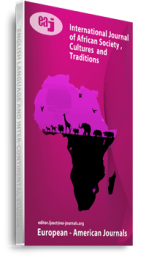Long before the advent of film and literary narratives, Africans were familiar with the shrill of the villain’s malice and the thrill of the hero’s valour in folktale stories told under the moonlight. With the transformation of Africa’s socio-cultural life by the process of modernization, the art of storytelling is remediated among many other channels, on the home video films: Nollywood. Common to the patterns of storytelling, most Nollywood films concludes with the hero dismantling the negative effect of the villain and the crisis instilled within the fabric of the culture. Virtue triumphs over vice in Nollywood. However, different from oral storytelling, visual storytelling can be far more gory and vivid in details compared to the former. In the visual dramatics and diatribe between vice and virtue, before vice becomes vanquished by virtue in the plot of Nigerian films, the negative vice must be displayed in full force with concomitant consequences. This in some ways re-enact the age long debate of theodicy in both philosophy and theology; the presence of God and the problem of evil. This paper postulates and verifies by film analysis the unequal distribution of time and space in film plot between the portrayal of the vice that is condemned and the virtue that is promoted. By such unequal narration exposition, this paper conjectures that films can have an inverse effect of teaching the vice it seeks to condemn. As Pope wrote, “Vice is a monster of such frightful mien, as to be hated needs but to be seen; but seen too oft, familiar with its face, We first endure, then pity, then embrace.”
Keywords: Film’s Crisis Resolution, Hollywood, Hypothesis of Inverse Effect

